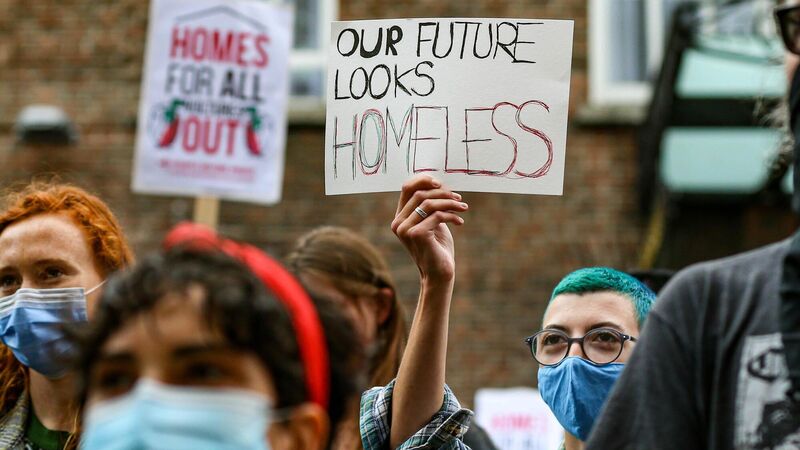Séamas O'Reilly: The generational human catastrophe of the housing crisis

Protestors gather outside Dail Eireann in Dublin for a rally highlighting the housing crisis in 2021. Photo: Damien Storan
Eurostat announced last week that 68% of people in their late twenties in Ireland live with their parents.
This is a statistic so jarring, it bears a closer look.









